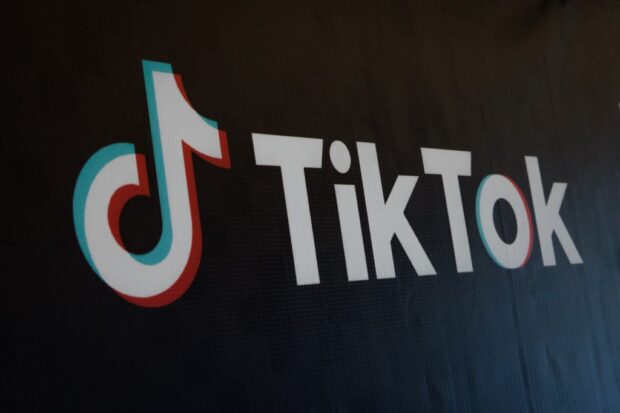TikTok makeup influencers spark health warnings

The logo of the social media video-sharing app TikTok. (File photo by YASUYOSHI CHIBA / Agence France-Presse)
PARIS — Pressed by parents to pose in videos with makeup and skin-care products, pre-teen girls dubbed “Sephora kids” have taken TikTok by storm in a trend that some specialists brand a danger to children’s mental and physical health.
American girls between the ages of 8 and 12 are gaining thousands of followers on the video platform by modeling their makeup purchases.
The trend focuses on products from the French high-street brand Sephora, championed by reality TV star Kim Kardashian’s daughter, North West.
Gushing over pots of moisturizer or begging their parents to buy them antiwrinkle cream, they pose in front of the mirror with their hair tied back, aping popular grown-up makeup tutorials.
READ: Handsome TikToker spreads Yemen rebels’ message
Article continues after this advertisementREAD: TikTok chef opens resto after online success
Article continues after this advertisementREAD: PH among most TikTok-crazed countries in the world
More trusted than docs
Skin specialists warned that some of the products used in the kids’ videos, such as retinol, contain ingredients not suited to young skin.
“Many of the ‘skin influencers’ sometimes are more trusted than real physicians,” US dermatologist Danilo del Campo told Agence France-Presse (AFP).
“This has led to an increase in consultations related to skin reactions and concerns resulting from the misuse of these products,” he warned.
“Most parents do not realize there are any risks.”
Parroting famous beauty influencers, the “Sephora kids” review products from high-end lines, such as moisturizers costing nearly 70 euros ($76).
‘Self-esteem issues’
“How can these little girls spend like, my salary, really, in skin care?” said one Sephora salesperson in the United States, in a TikTok video.
Del Campo warned unsuitable ingredients can damage young skin.
He has also seen “self-esteem issues” among his child patients who “feel the need to correct perceived flaws that may not actually exist.”
Employees at Sephora have complained about the behavior of young customers in stores, with videos showing makeup counters in disarray and spilled products.
Sephora, part of the LVMH luxury group, did not respond to requests for comment from AFP.
Michael Stora, a psychoanalyst specializing in online behavior, said the girls in the videos are “not playing with dolls as you might expect at their age — they are the dolls.”
Just a ‘game’
Some mothers in the videos defend the trend as just a “game”—but Stora accused parents of the “fetishization” of their offspring.
Solene Delecourt, a professor at the University of California, Berkeley, specializing in social inequality, also believes the videos can “contribute to a very stereotypical representation of girls and women online.”
“These are not women but little girls, and they are already subject to this intense social pressure,” she said.
Delecourt released a study in the Nature Journal this month which said that online images amplify gender bias, particularly against women.
In recent months, TikTok and other social media platforms have come under fire over the impact of videos on young people.
In January, tech giants faced a grilling before the US Senate Judiciary Committee after being accused of not doing enough to thwart online dangers for children, including sexual predators and teen suicide.